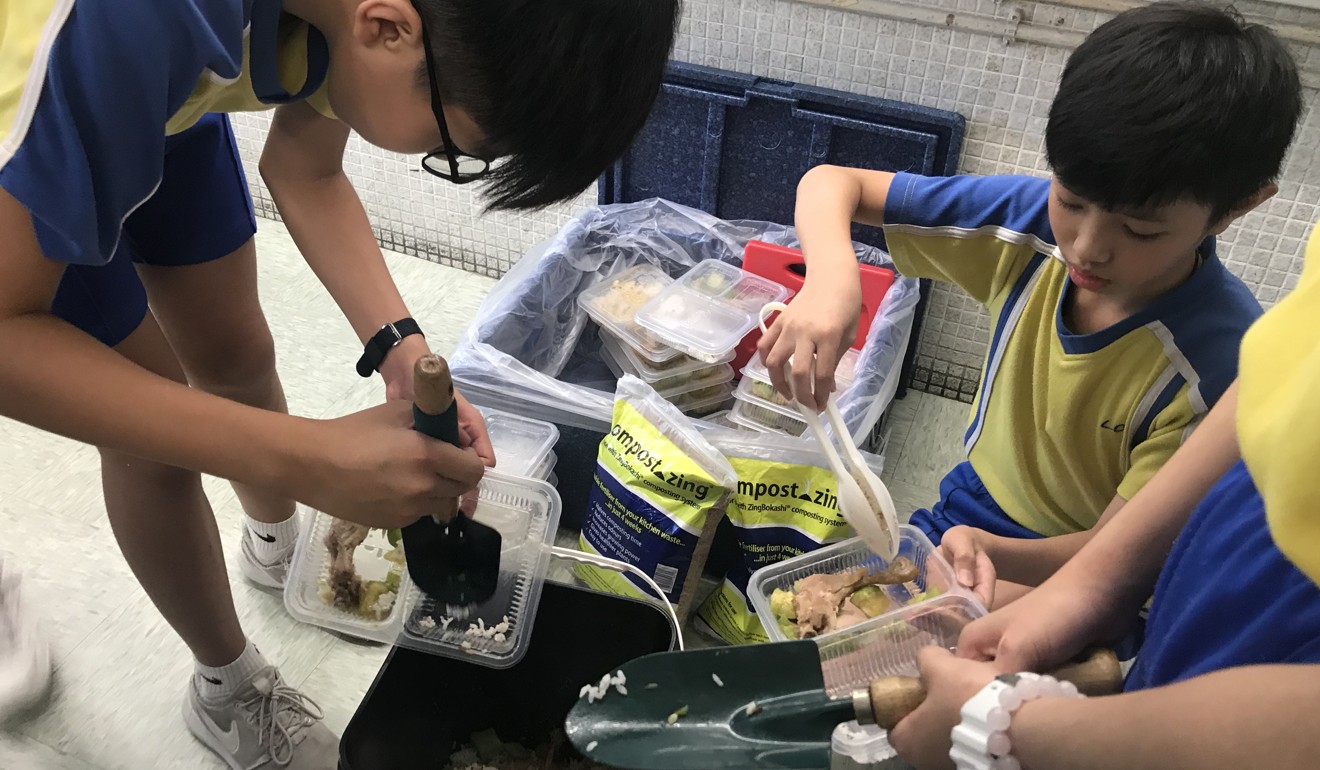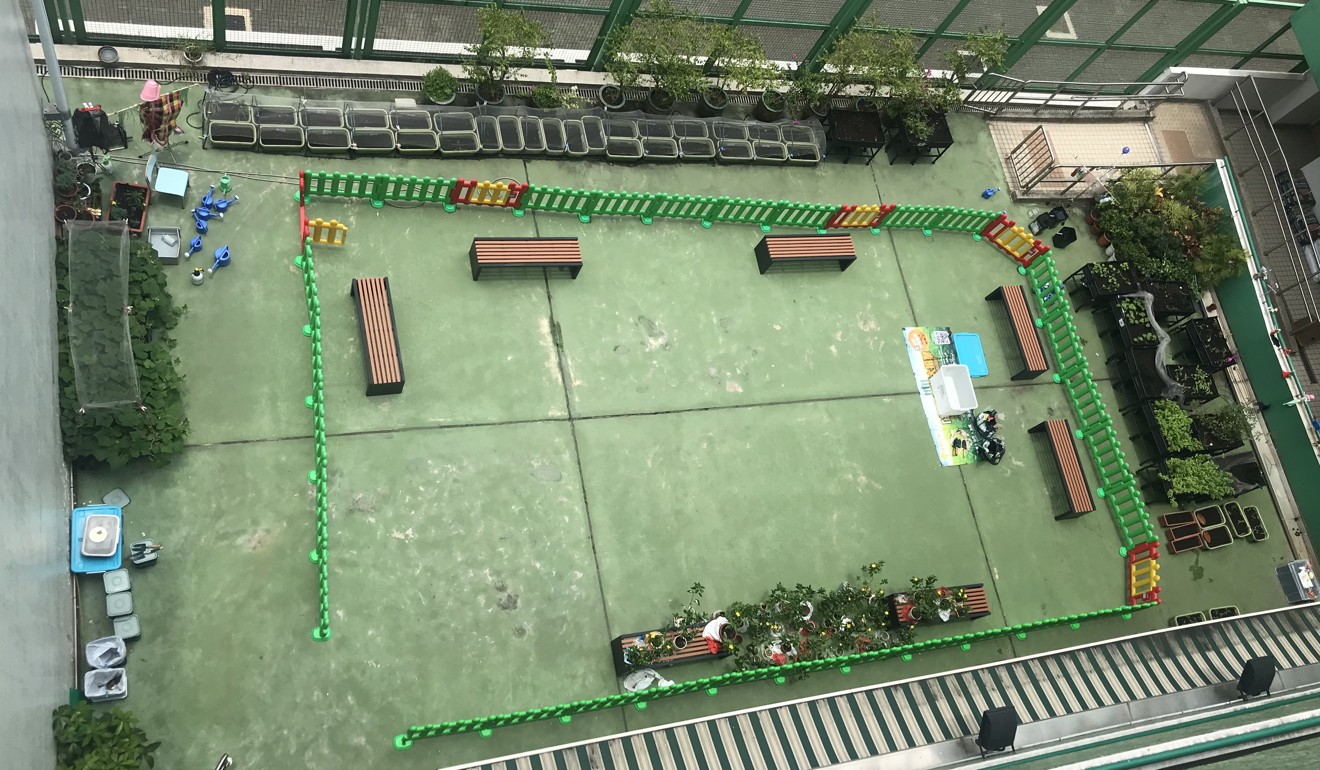
A matter of waste: the Hong Kong pupils making compost from their leftovers
School in Tuen Mun among 17 in city sending environmental ambassadors to classes after lunchtime to gather up – rather than throw away – uneaten food
A school bell rings, and a team of four young green pioneers are geared up for their mission. They carry their tools – bucket, shovels, two bags of sawdust – and march to different classrooms of Lui Cheung Kwong Lutheran Primary School, in Tuen Mun.
They are collecting lunch leftovers.
“When I first started, I didn’t want this job,” says one of the pupils, Sam Chow Ho-san. “The bag was just too smelly.”
The dust is full of various effective microorganisms, like bacteria and fungi, which help turn the waste into organic compost.
Every two weeks at the school, four students picked as environmental ambassadors go to different classrooms at the end of the lunch break, collecting the leftovers. It is a part of the Zero Food Waste in School programme that environmental group Greeners Action has organised at 17 Hong Kong schools, to reduce food waste and raise awareness of just how much food ends up in the bin.

According to the green group, schools in Hong Kong produce about 15,000 tonnes of organic waste per year, enough to fill more than 30 million lunchboxes.
Now, in the 10 primary schools and seven secondary schools the group works in, pupils learn how to recycle leftovers through a treatment system which, unlike using a waste processor, requires no electricity. Students simply add different layers of the sawdust to the waste, wait two weeks for it to ferment, and then mix it with soil for a month.
Through the programme, pupils also get an introduction to “farm-to-table” green living. The pupils at Lui Cheung Kwong Lutheran have harvested tomatoes and bak choi, which they planted using the soil fertiliser they composted.
“After the kids and the teachers went to reap the vegetables, we cooked together and enjoyed the meal,” Wong Yee-wa, the school’s principal, says.
“The organic vegetables we planted were especially fresh and very different from those at the market.”
An empty playground on the school’s second floor has transformed into a garden since the project began. Students sow the seeds, water the plants and fertilise the produce during their break. Greenery can be seen all around the space, adorned with colourful handmade mini scarecrows.

Vicky Jim Hoi-ying, project officer of Greeners Action, says the amount of food students throw away after lunch has dropped significantly. She says the waste from two classes used to fill up a bucket, but since the programme started, it now contains leftovers from six classes.
Cherry Chong Wing-hei, another student green ambassador, says: “Now that I know collecting food waste is not easy, because the bucket is really heavy, I will try to finish up my food .”
The pupils treat the plants as if those were their kids. They are very proactive in coming up with ways to take good care of them
The teacher in charge of the programme, Mandy Chu Man-ting, says the whole process was also a life lesson for the pupils.
“The pupils treat the plants as if those are their kids. They are very proactive in coming up with ways to take good care of them. During the Easter break, they were so worried about the seedlings. Through the process, they learn how to care for small organisms with love and effort,” she says.
Jim says: “Within a year, students have changed from saying ‘the smell of the food waste makes me sick’ to encouraging their classmates and family members not to waste food.
“Through down-to-earth events like learning how to compost and visiting farms, students really build up a habit of not wasting food.”
